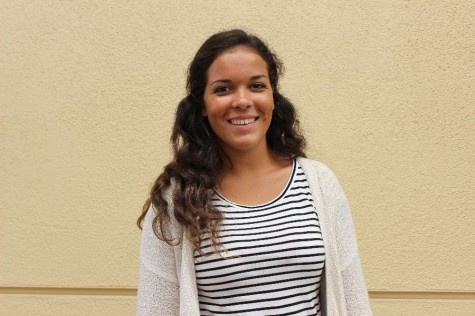Politics. One of the world’s most popular and controversial topics of discussion, and with good reason. Upon hearing the word, most Americans think of money, power, Republicans and Democrats. However, the two dominant parties are not all our government has to offer.
Many high school students and adults know very little about third parties. In the state of California, there are six recognized political parties: the American Independent, Green, Libertarian, and Peace and Freedom share ballot access with the Democrat and Republican parties. Until now, this meant that all six groups and their candidates could appear on the ballot given to voters on election day.
California’s Proposition 14, also known as the Top Two Primaries Act, changes that.
The act makes it nearly impossible for third parties to appear on the November ballot. It requires that all voters receive the same primary election ballot for most state and federal offices, and only the top two candidates with the most votes advance to the general election.
Supporters of Prop. 14 such as the California Chamber of Commerce and the Latin Business Association claim it is an advantage. California citizens may vote for any candidate they want for state and congressional offices, regardless of political party. Supporters also believe that measures like Prop. 14 simplify the election process for voters and result in elected representatives who are less partisan and more moderate.
Opponents like the American Civil Liberties Union of Northern California argue that the Proposition is deceptive and will make the primaries less open. They claim that because candidates do not have to list their party affiliation on the ballot, it allows them to look independent while still remaining loyal to their party.
More importantly, they argue, Prop. 14 prevents all parties except Democrat and Republican from advancing to the general election, which will effectively eliminate third parties in California.
The six parties held a joint press coverage on May 11, 2010 in Sacramento to express their mutual opposition to Proposition 14. Instead of bargaining with members of the parties, large corporations turned to voters and put the proposition on the ballot in an off-cycle election with record low turnout. The act was passed on June 8, 2010 by a 54 percent majority vote.
“Single seat, winner-take-all is the problem,” said Green Party member and former Santa Monica Mayor, Mike Feinstein. “We shouldn’t increase democracy by limiting voter choice, which is what the Top Two does. We need to replace it with a system in which we elect multiple people in a single district.”
“Proposition 14 is a tragic mistake,” Libertarian and editor of Ballot Access News, Richard Winger said.
Running for a political position as a third party candidate is no easy task.
2004 Green Party Vice Presidential Candidate Pat LaMarche said, “It was like being a ghost. Some people believed in you, but most people didn’t think you were there. I became tired of the condescending remarks.”
With smaller campaign budgets and exclusion from most debates, third party candidates receive little publicity. The news media rarely covers parties outside of the Democrat and Republican, though it should not have bias. Democrats and Republicans are funded by corporations who own the media, giving them air time that other parties on the ballot do not benefit from.
San Rafael Green Party member and environmental activist Marnie Glickman said, “One of the main reasons third parties are excluded is because we have to pay to play. Because we do not have public campaign financing, we are at a loss. Big companies invest in big campaigns.”
Of course, money itself will not resolve the problems that third party candidates face.
“People are inclined to vote for the winning party, yet fail to realize that they are the reason we will not. More important than our financing are the laws that make it impossible for third parties to win,” said LaMarche. “As long as the two major parties have their death grip around the throat of America, laws cannot be changed. It needs to be possible to win.”
Former National Chairman of the Libertarian Party, Bill Redpath said, “We must change the voting system. Political scientists will tell you the problem is two dominant political parties both trying to win a single-district system. I do not think the Libertarians or any other third party will be an electoral success until we have proportional representation in the United States.”
Many high school seniors are already legal adults and have the power to vote.
“Always vote, even if you’re bored or frustrated. Decisions are made across the country by majority. When there are more votes being cast, we have a better government,” said Glickman.
Feinstein said, “Act on your beliefs in politics. People can trust where you’re coming from if you vote for what you believe in. If you don’t, you’ll never be satisfied.”
Young adults must realize they have the power to decide the future of the United States. One should be able to vote for the party that represents his or her view, rather than settle for the lesser of two evils.

